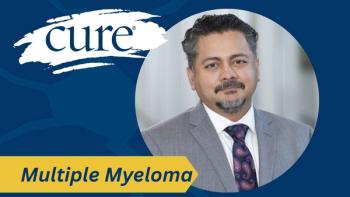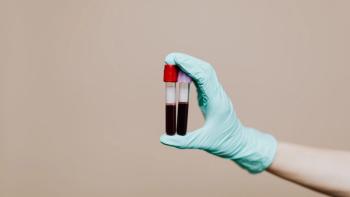
Looking Ahead in Multiple Myeloma
Transcript:
C. Ola Landgren, MD: Do you have any advice for patients who are newly diagnosed with myeloma? If a patient was diagnosed today, let’s say.
Aurora Torres: The only thing that I can really say is that a person should always pay attention to their body and what it’s saying to them. If you have a pain that you’ve never had before, or if anything related to the patterns of your body is different, do not wait. Go to your physician and find out what it is. And, if they don’t have an answer, keep going until they do have an answer. Sometimes, people just wait. It becomes too late, and then there’s no cure for them.
C. Ola Landgren, MD: If a patient were to be diagnosed with myeloma by their local doctor or one from a larger center, would you have any advice?
Aurora Torres: I would suggest a second opinion if they didn’t feel that their first doctor was giving them the right opinion or if they didn’t feel right about it. Other than that, I don’t have anything else. I think that’s fine.
C. Ola Landgren, MD: You’re currently on daratumumab because the disease has returned back with a recurrence. You’ve been on it for quite a while. You really have no toxicities from it. There are ongoing clinical trials looking at the use of daratumumab, even in newly diagnosed patients. I’m the lead principle investigator for a new trial, which we have just opened, where we use it in combination with carfilzomib, lenalidomide, and dexamethasone. This is a study that is only open at Memorial Sloan Kettering Cancer Center. Preliminary data suggest that the responses are just amazing. They’re very deep, fast responses. There are other studies ongoing with bortezomib, and lenalidomide, and dexamethasone, where patients are randomized to either that combination or with daratumumab. So, it’s a randomization either with or without daratumumab. Those data are about to be presented. Preliminary from what I’ve heard, it also looks very promising. There are other combinations done, outside the United States, where people have used thalidomide with bortezomib and dexamethasone, also randomized plus and minus daratumumab.
C. Ola Landgren, MD: My readout, on the literature, is that we probably are going to end up using 4 drugs. Daratumumab will be 1 of the 4 drugs, going forward. I think we will continue to see improved outcomes. Patients are going to live longer and longer with this disease. Hopefully, we’ll be able to establish a cure for this disease. And the toxicities are going to be less and less, which is fantastic.
Aurora Torres: Yes, it is. My opinion is that anything that can bring down a person’s toxicity, that can have less negative side effects, is wonderful. Some of the therapies that are used, the oral ones that I’ve had, have been so negative that I know I can’t function. That’s the main thing. You want people to have a good quality of life. I know that the regimen that I’m on allows me to have that.
Transcript Edited for Clarity



